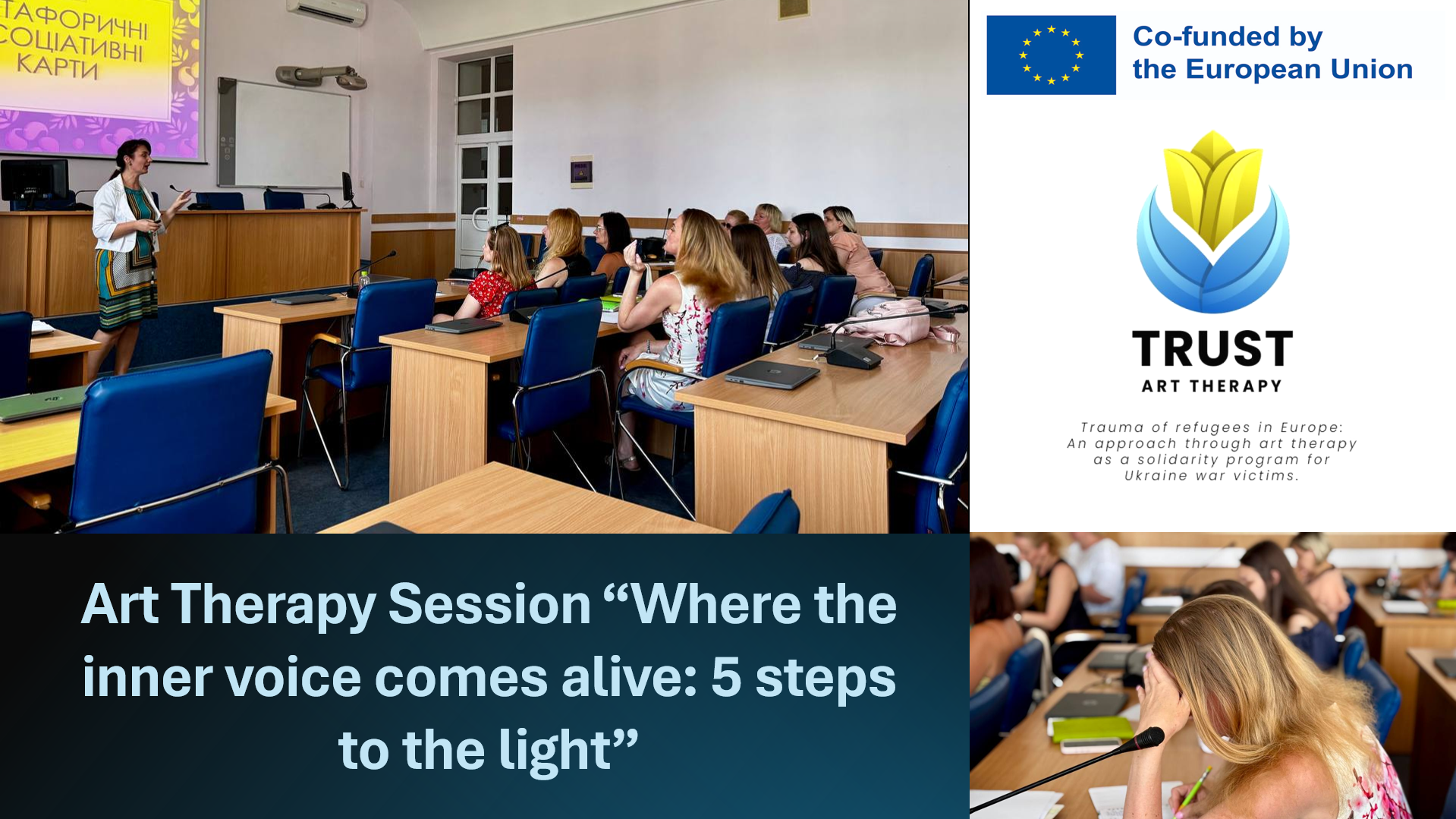With the beginning of the full-scale war, a significant number of young people faced profound loss: the loss of home, familiar surroundings, and a fundamental sense of safety. This experience is extremely traumatic, especially for boys and girls going through a critical stage of personal development.
In this whirlwind of challenges, art therapy emerges as a safe, gentle, and natural way to explore one's inner world. It allows individuals to express what is difficult to put into words and rediscover a sense of unity, realising they are not alone. By creating a space of complete trust, art therapy enables participants to feel grounded again and, at times, even regain a sense of life purpose that they may have lost. After just a few sessions, participants noticeably begin to open up, become more courageous in expressing their feelings, and more confident in their own decisions. As a result, anxiety levels decrease, and new inner resources begin to emerge.
Currently, Poltava Polytechnic is hosting a series of in-depth art therapy activities designed to provide comprehensive support to individuals affected by the war during this challenging time. One recent art therapy meeting, masterfully organised by practical psychologist Olena Kryvenko and PhD in Pedagogy, Associate Professor of the Department of Psychology and Pedagogy Maryna Teslenko, bore the poetic title “Where the Inner Voice Comes Alive: 5 Steps Toward the Light”. This time, the session was based on metaphorical associative cards (MACs) – a powerful tool for working with the unconscious, internal conflicts, and blocked emotions. Each participant selected an image that most deeply resonated with their inquiry and, through that image, began to open up, experience their inner needs, fears, and dreams.
During this process, unique stories were born – deeply personal and yet united by common human experience. Participants immersed themselves in self-exploration, drawing on their own experiences, reflecting on the sources of their inner strength, letting go of what was unnecessary, and connecting with the light that resides within each of them. Many noted that such exercises helped them see themselves from a new perspective for the first time, strengthened their belief in their abilities, and helped them better understand their goals, even outlining concrete steps toward achieving them. Through these art practices, a profound realisation is born: “I can be strong even in vulnerability”, “I don’t have to hide – my emotions have the right to exist”, “I have a voice – and it matters”.
The most touching moments arose when participants, experiencing a deep emotional response, repeatedly said: “This is about me”, or “It feels like I’ve found a piece of myself”. In these moments, something more than reflection occurred – it was an act of inner recognition, a moment of genuine connection with one’s authentic self, something that had long remained hidden and unarticulated, but had now found form, colour, and voice. This is when art therapy becomes a space for encountering one’s true essence – alive, vulnerable, yet full of strength.
“Where the Inner Voice Comes Alive” is more than just a poetic title. It is a metaphor for the healing process, in which each participant’s voice gains power, clarity, and resonance. For the inner voice is our guide to the true self, and when it comes alive, the light appears.
The session’s conclusion was especially warm – everyone had the opportunity to share a personal insight. Participants wrote short reflections about how art therapy impacted their mental health: “I realised that I have a lot of strength – and I can use it for good”. These words are undeniable proof that art therapy truly works. It does not offer ready-made solutions, but it opens a path to acceptance, recovery, and growth.
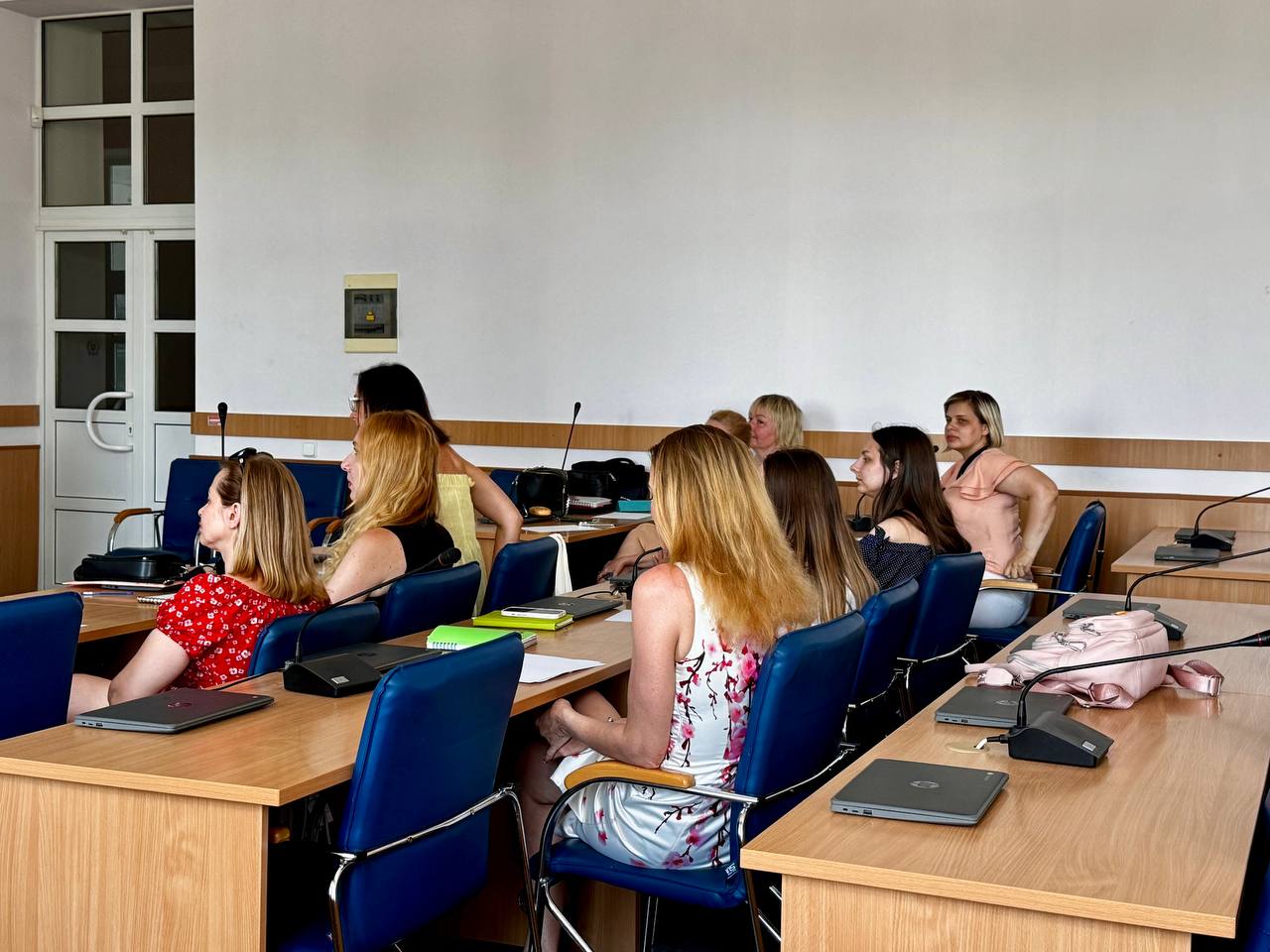
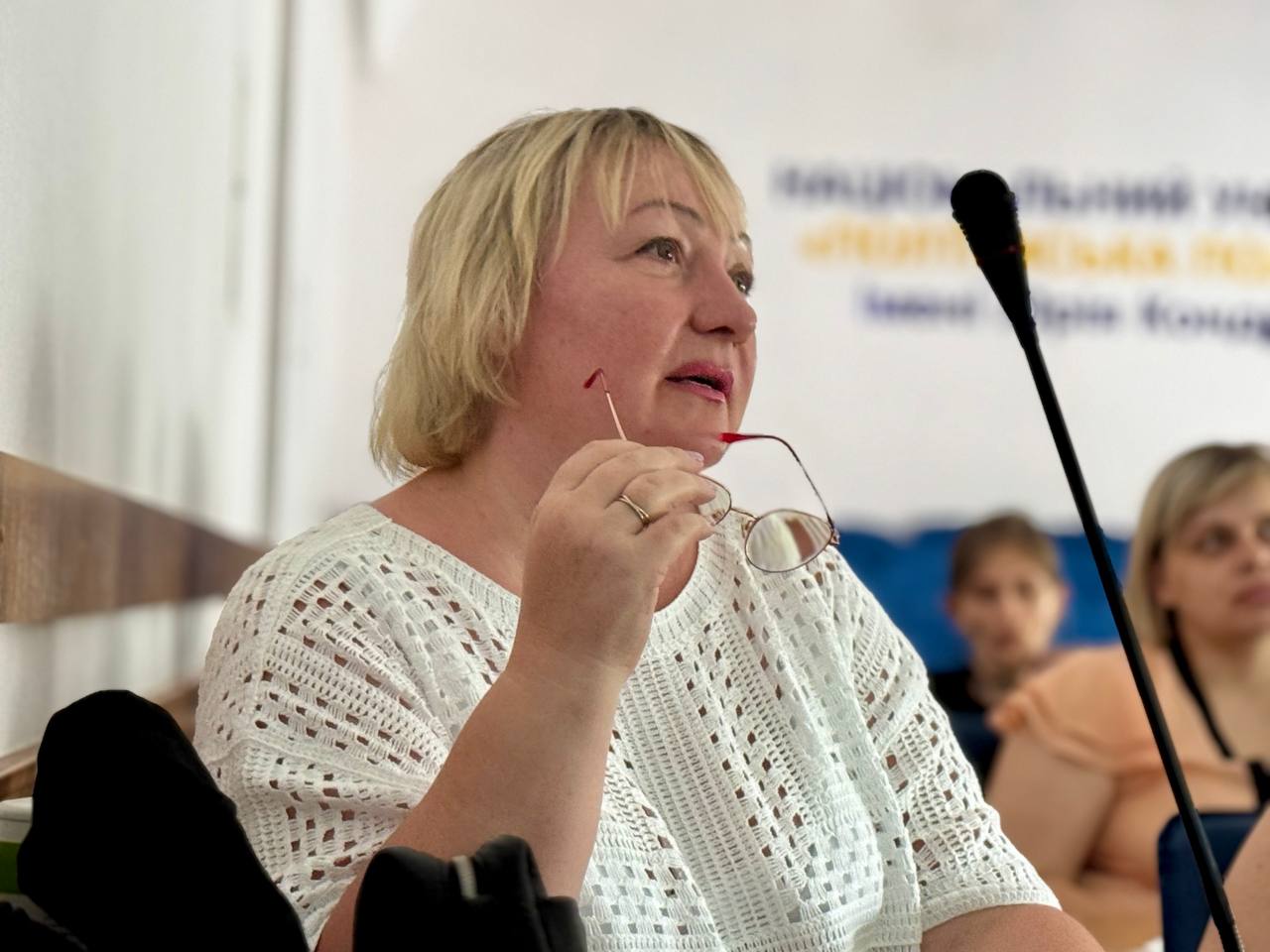
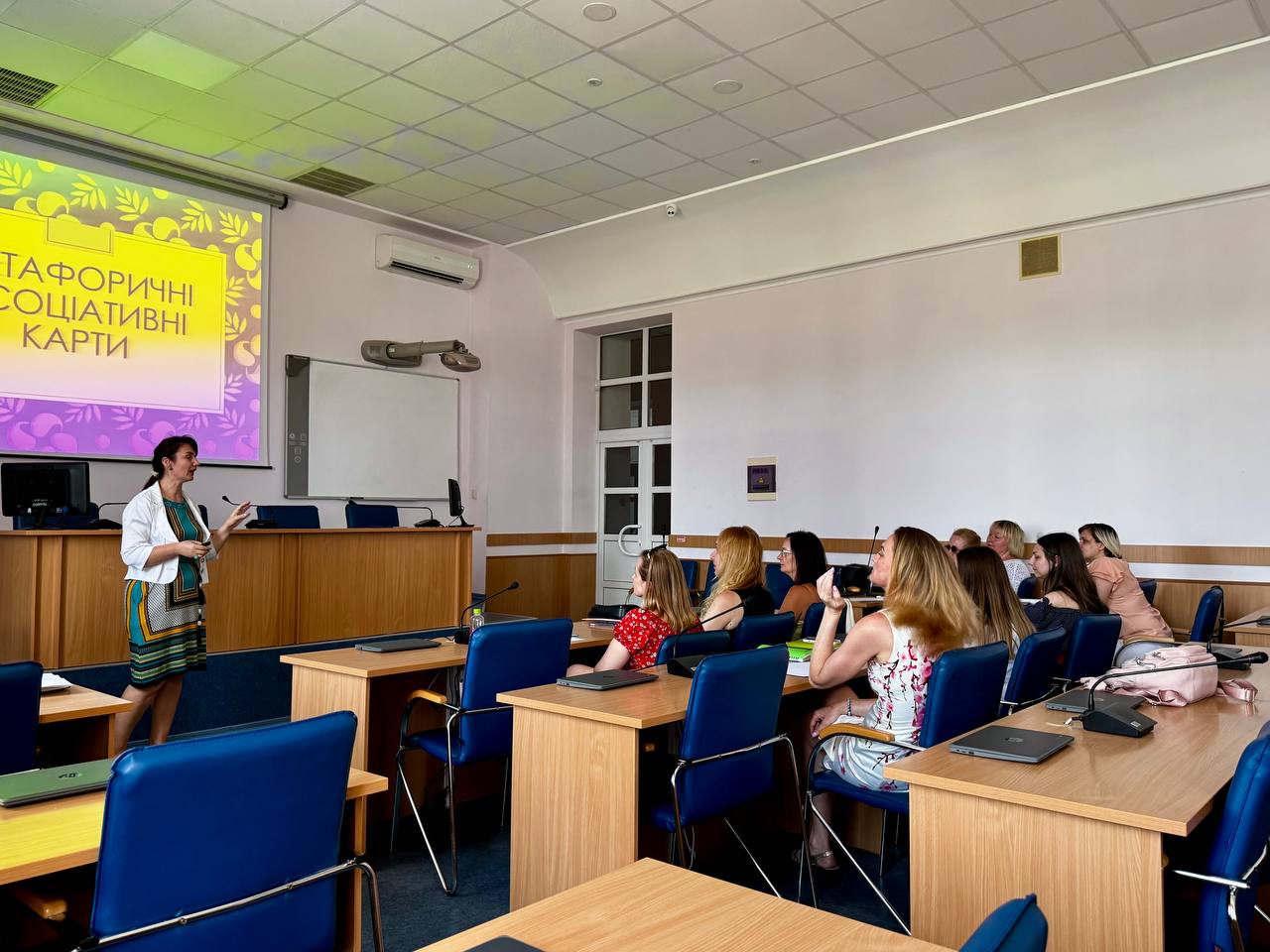
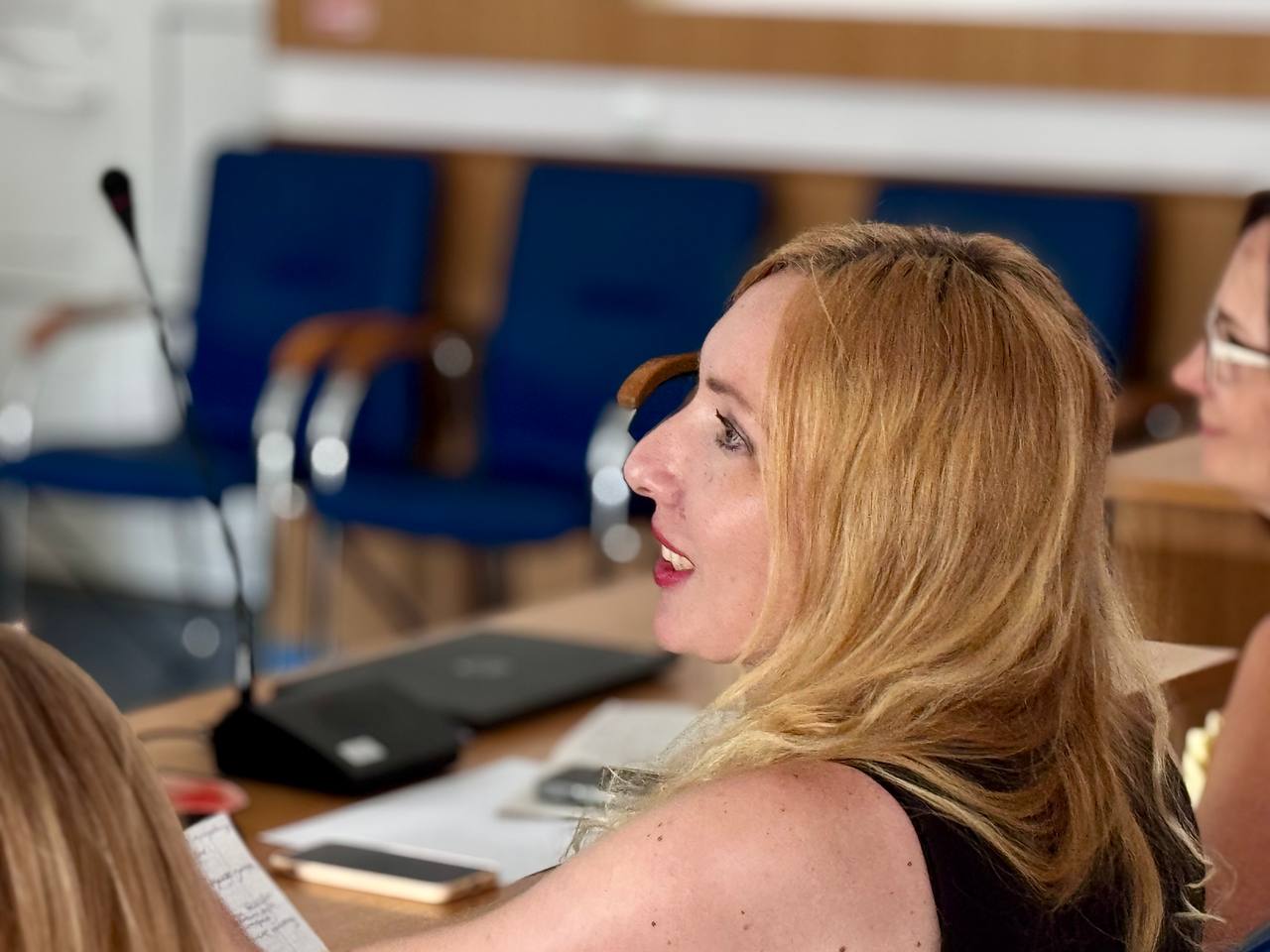
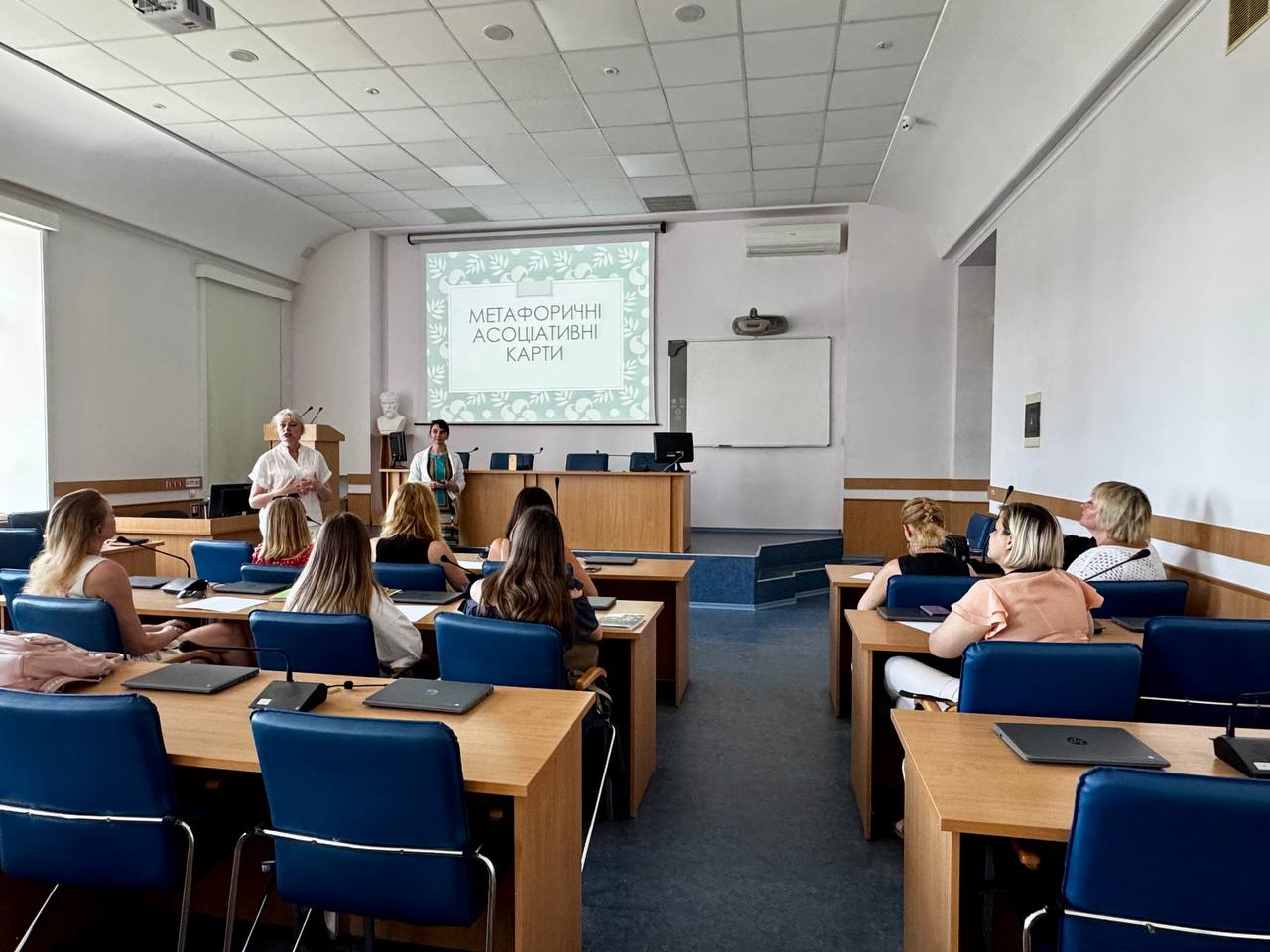
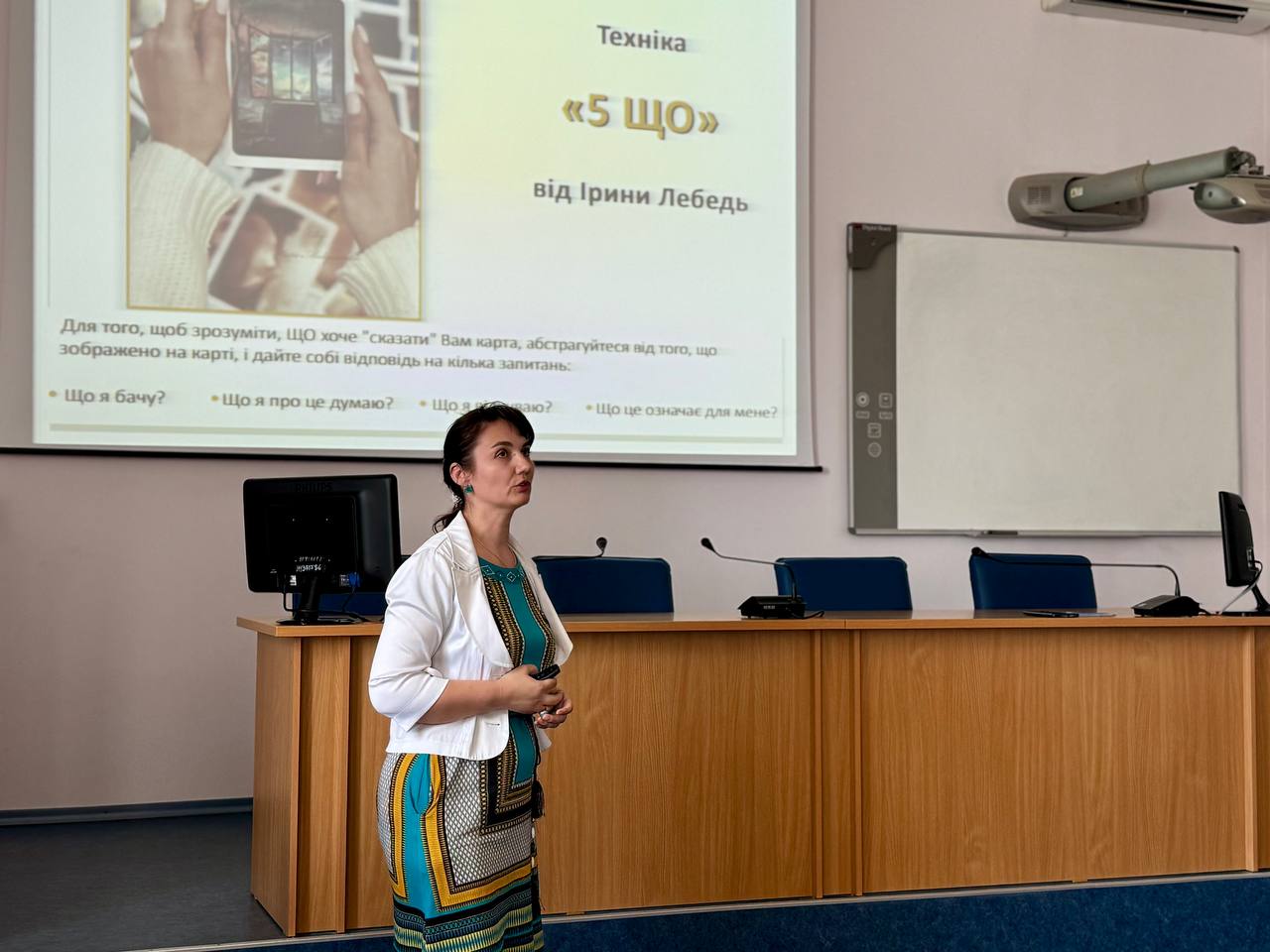
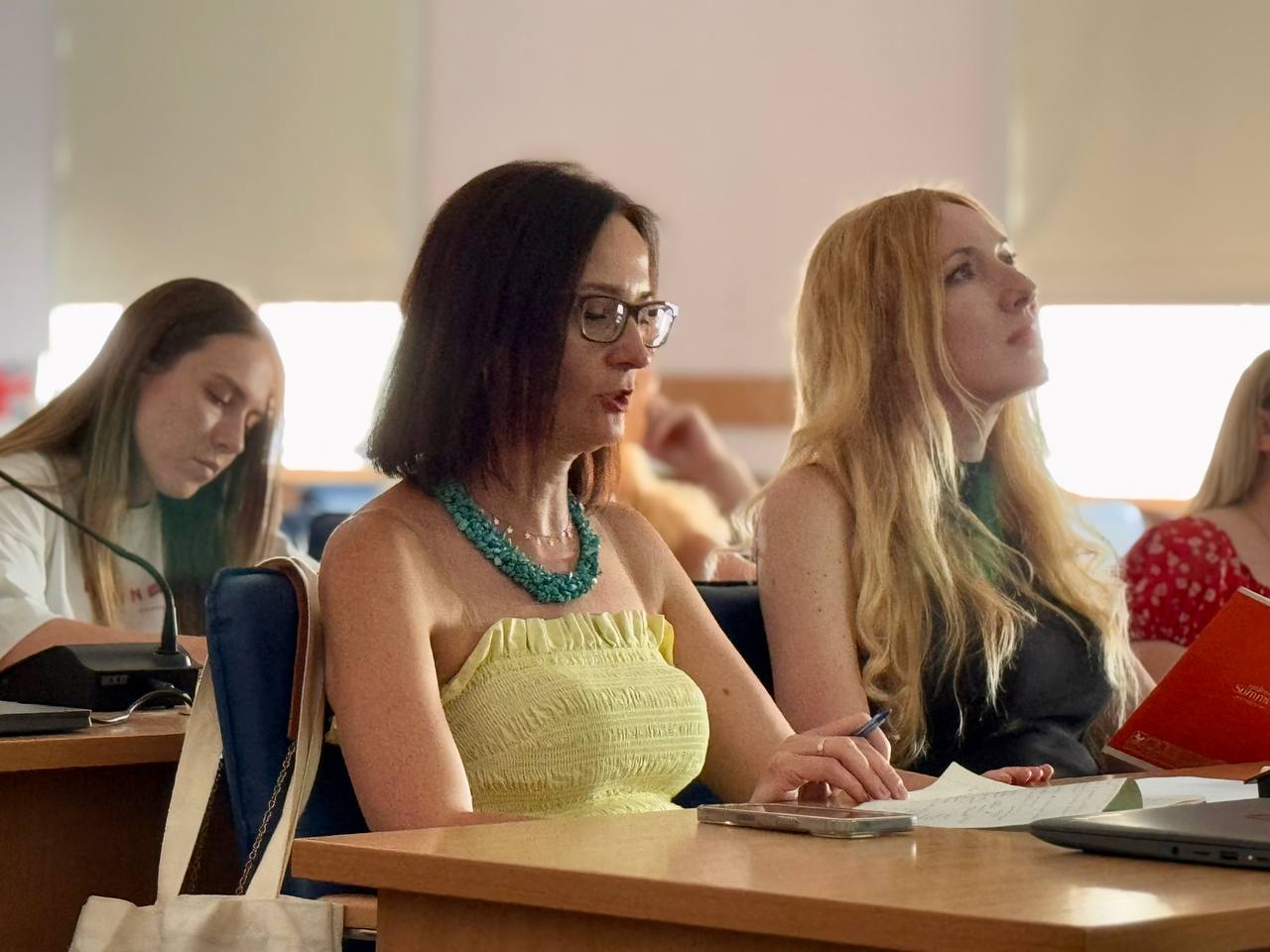
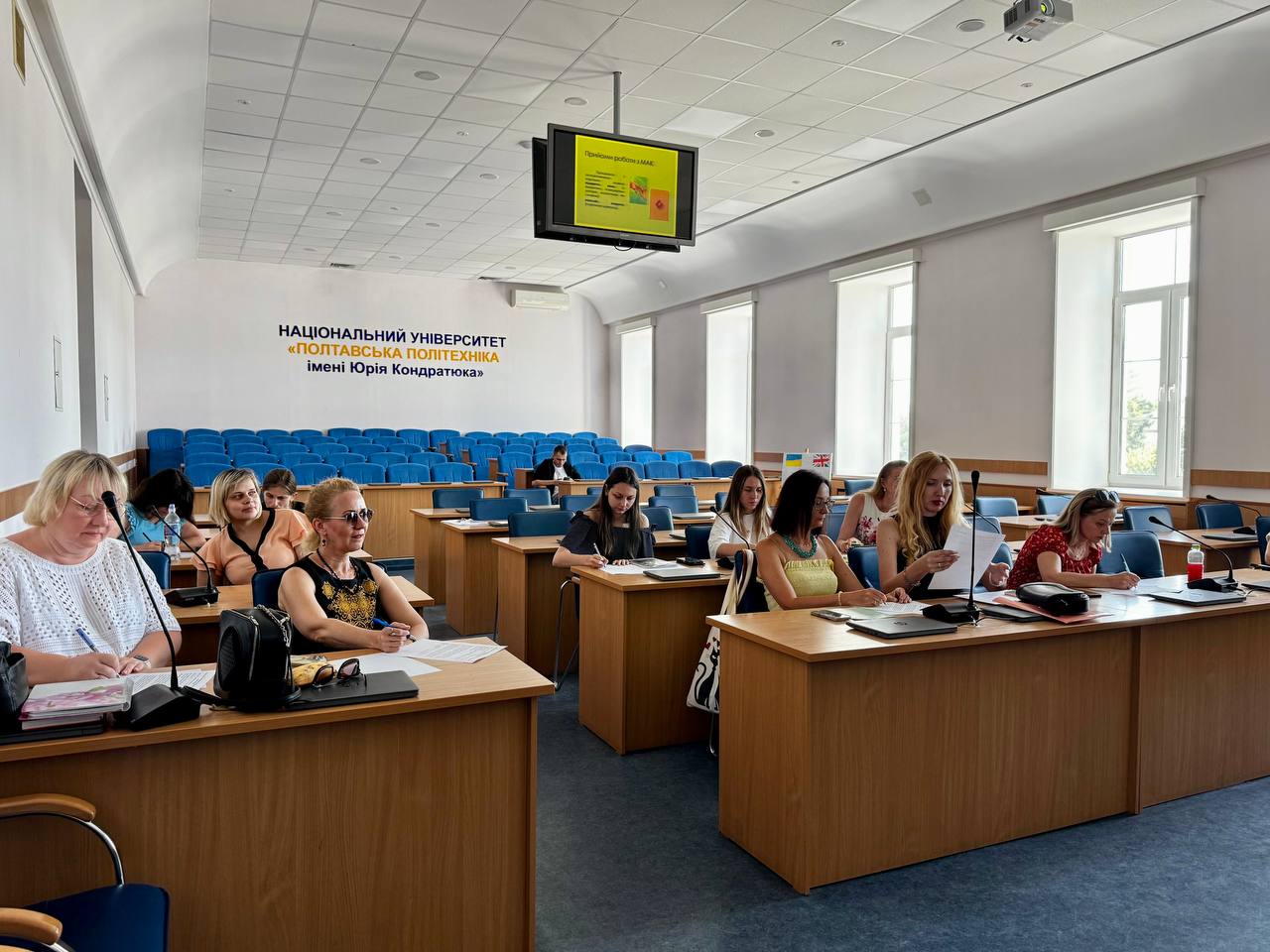
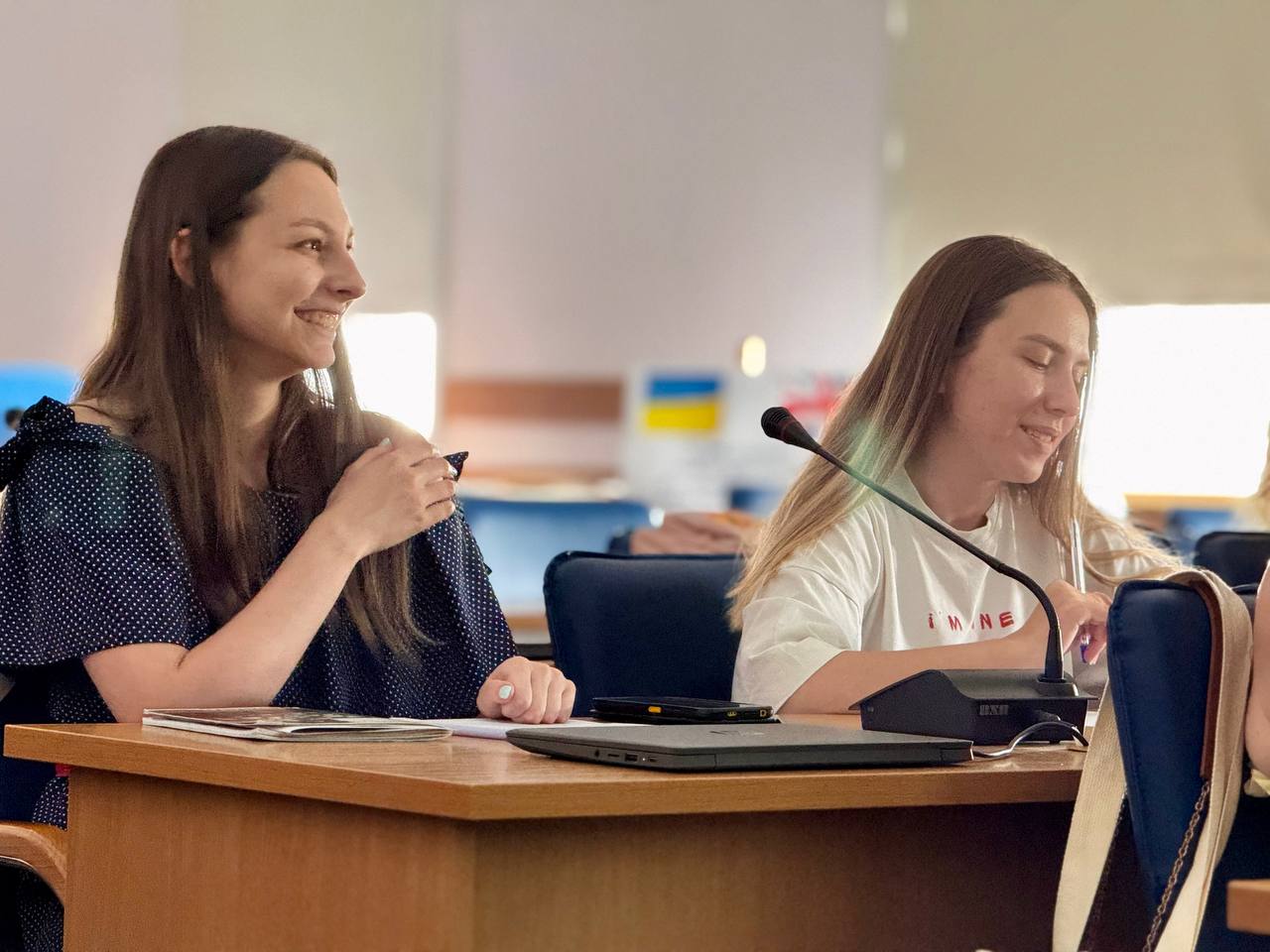
At the end, the facilitators shared heartfelt words of support: “You don’t have to keep everything inside. Your story matters. And even if the road to healing is long, every creative act, every drawing, every word brings you closer to your true self. Ask for support, allow yourself to create – this is already the first step toward recovery”.
Upcoming events within the TRUST project promise even more profound practices, new methodologies, and – most importantly – the support that Ukrainian youth so urgently need at this time. Because art is not only about beauty, it is also about hope. About life that grows even through the cracks.
This session marked another meaningful step in the implementation of the Erasmus+ KA220-ADU TRUST project – Trauma of refugees in Europe: An approach through art therapy as a solidarity program for Ukraine war victims (Grant No. 2024-BE01-KA220-ADU-000257527). The project is co-funded by the EU and led by the Centre Neuro Psychiatrique St-Martin from Belgium, in partnership with the National University “Yuri Kondratyuk Poltava Polytechnic” (Ukraine), Greek Carers Network EPIONI (Greece), Fondazione Don Luigi Di Liegro (Italy), Lekama Foundation (Luxembourg), EuroPlural Project (Portugal).
The previous sessions included symbolic activities such as designing personal coats of arms to represent inner values, sources of strength and hope; associative drawing exercises; the “Relationships” activity aimed at reflecting on personal connections with loved ones, community, and country; discussions around “What does mental health mean to me?”; neurographic drawing; and immersion in body-oriented therapy where movement, dance, and physical expression become key tools for emotional release and recovery, worked with metaphorical associative cards, practiced associative reflection of thoughts on paper and explored the symbolism of the elements of nature and their direct impact on the human psyche and emotional state, plunged into music and daram therapy and took part in a unique art therapy session on neurography titled “My Tree of Life”, worked with metaphorical cards and the Nossrat Pezeshkian psychotherapeutic model, сreated drawings depicting a personal “Tree of Power”, did the art therapy exercise “My superpower”, were given tools for deeper self-understanding by transforming pain into art, and art into a path to healing; helped children recognise and understand their emotions, learn self-soothing techniques, and restore their emotional resilience.
Media Centre of
National University “Yuri Kondratyuk Poltava Polytechnic”
